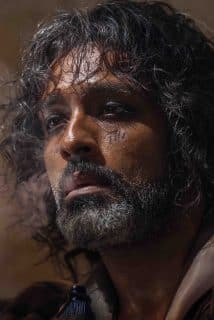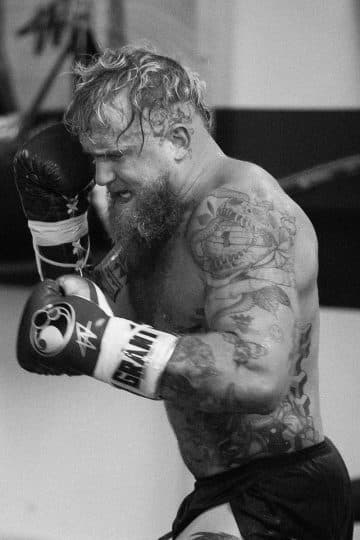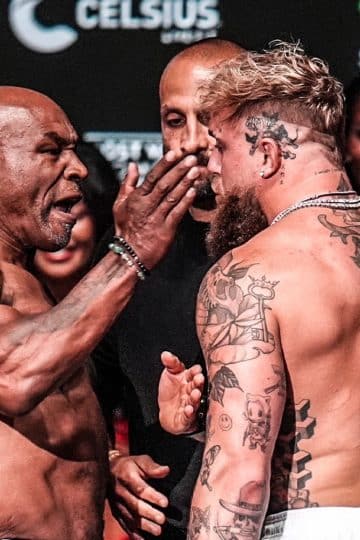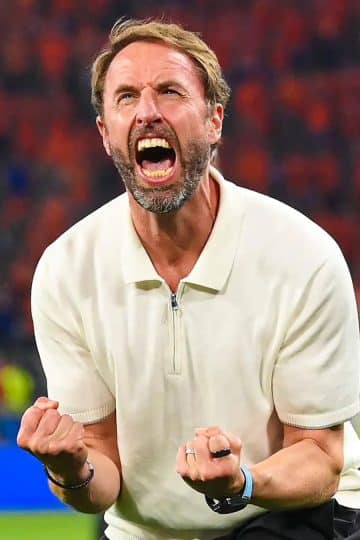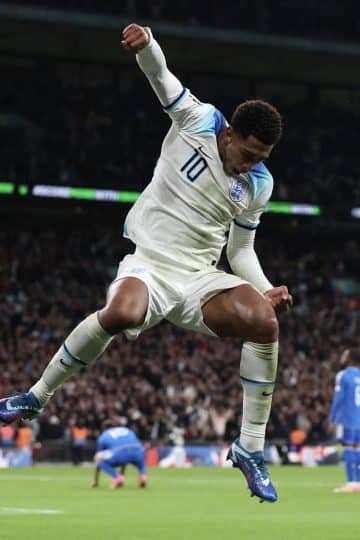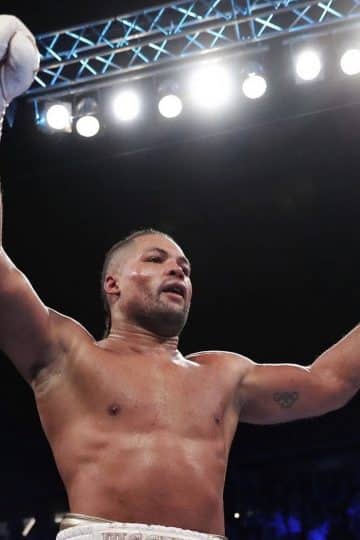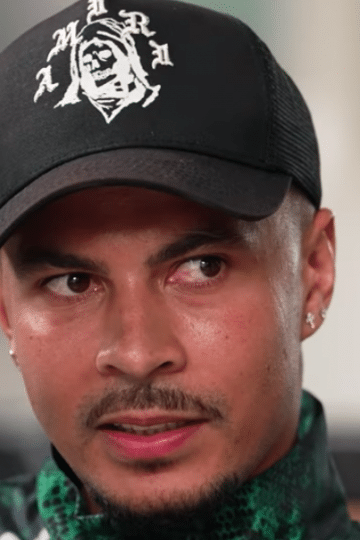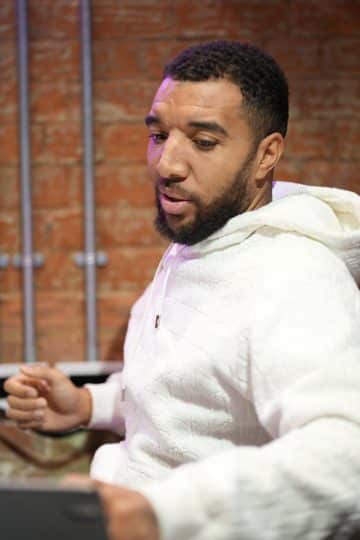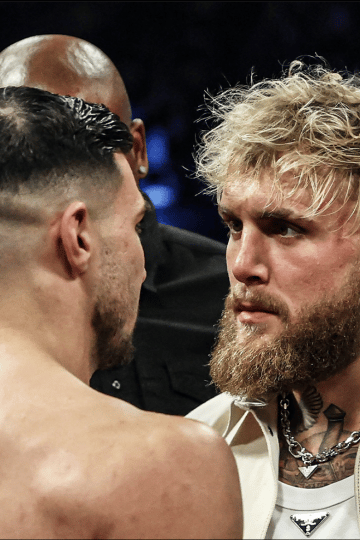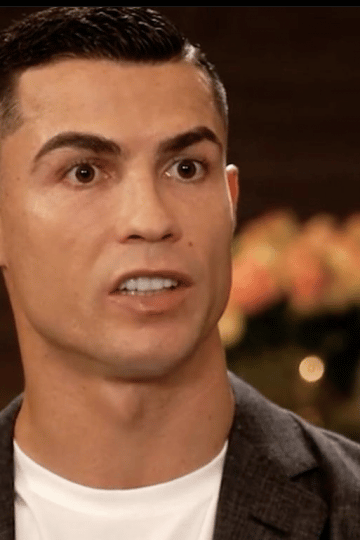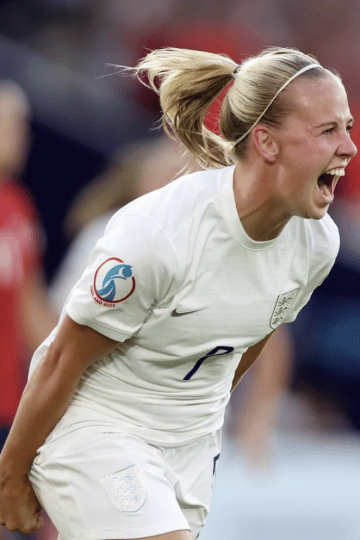The Football Prodigy Who Barely Survived The Game
Sport
Martin Bengtsson was a Swedish prodigy who signed with Inter Milan at 16, which turned out to be a nightmare. As a new film TIGERS tells his story, we spoke to Martin himself about lifting the lid on the damaging pressures on young players...
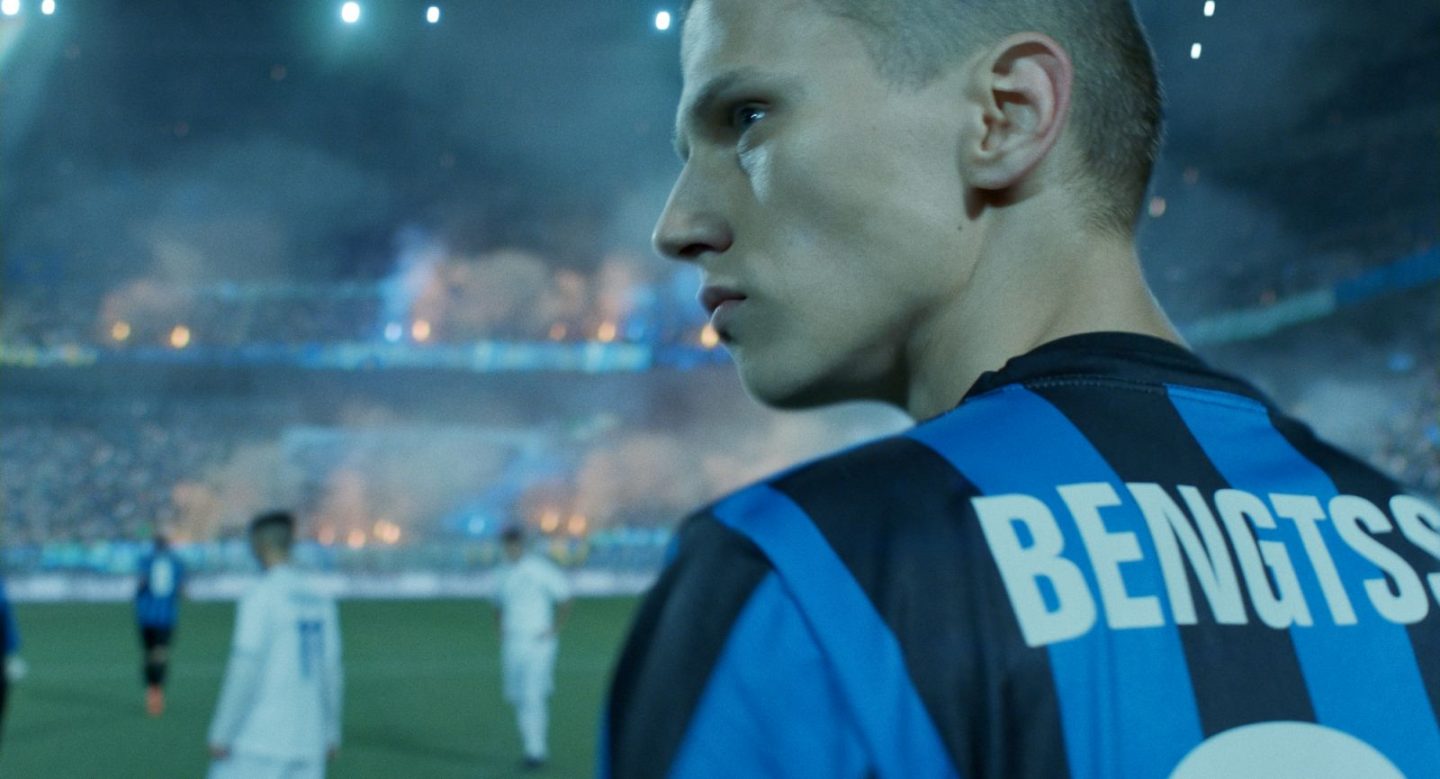
TIGERS is an excellent new autobiographical drama based on the true story of Martin Bengtsson, a Swedish football prodigy who, in 2004, was signed to Inter Milan at the age of sixteen. However, what he experienced was incredible pressure, isolation and loneliness that came from being away from home at such a young age, in a footballing environment that was highly competitive and where weakness was not tolerated. As TIGERS shows, it led him into a very dark place and led him to leave Inter and then football entirely. The film is directed by Ronnie Sandahl and stars Erik Enge, and has caused a sensation at film festivals this year. With it’s UK release coming on 1st July we were given the opportunity of speaking to the real Martin Bengtsson which turned out to be a revelatory chat about the football world, being a man, and how you get through the darkest of times…
Hi Martin, TIGERS is a fantastic film but how has it been for you to watch it?
I’ve watched it a couple of times now at festivals. Slowly, I’m getting used to it. I think it’s a very good movie as well. I’m very happy and proud of what Ronnie and the team have had done and how they have adapted and transformed this story to modern day football while still being true to the core journey. It’s a movie that’s not only about football, and that’s what I like. It’s about coming of age and dealing with existential questions, while you’re in this dream that everyone wants to reach. I think they succeeded in that way. And of course it’s been special to to watch an actor go by your name in a film. Quite surreal.
What was the journey of bringing it to the screen? Was it a long process?
Me and Ronnie released our debut books around the same time in 2007, in Sweden, and after that, I moved to Berlin to write and play music, and also Ronnie moved thee after a while. And so we got to know each other in Berlin. At that time, he had turned from journalism and book writing more into film, and had just made his first short. This was around 2010, 2011, many years ago now. I had offers from different companies to turn my book into movies, but we made a pact, after a drink one night, that he would do it. I had the sense he’s a very talented director, but also a talented writer. I knew that he would probably be the best fit for this. It was also something with his mentality, he was also a young journalist coming through when he was around 16 in Sweden, in the biggest newspapers – we had a similar journey. It’s been a process since 2011, where I have read his scripts, been part of the process in reading, giving feedback and so on. It’s been very exciting to see it come to life after so many years.
Were you involved with casting and were the cast coming to you for advice?
I saw some casting tapes for the main role, and gave my opinion, and I was very happy with the guy they picked, Eric. But I tried to keep away as much as possible from the movie and the work around it. I really wanted Ronnie to own it and to make his film, and to make it an artistic work rather than come to me and ask if it was okay. As long as it becomes the best possible movie, he was good to go. There were some factual things we had to be in discussion around and talk about, but working as I do in movies, and in TV, as a scriptwriter, we’d already had that built up in terms of dramaturgy. So it was quite an easy process in that way.
Did you did you build a relationship with Eric, though?
Ronnie tried to keep him separate, on purpose, for almost a whole process. Eric had created his own Martin, when we finally had a sit down. And then he was curious, of course, and asked questions, and we talked but I think it was the total right decision that he makes his own Martin, the fictional Martin rather than trying to imitate something. I think a lot of times it comes down closer to how you actually are because sometimes when you imitate, you lose track. It’s better as an actor, that it’s your work and you dig into what the character wants, and what is his way to get that, and what problems does he run into, and what situations affect him and so on, rather than trying to make a portrait.
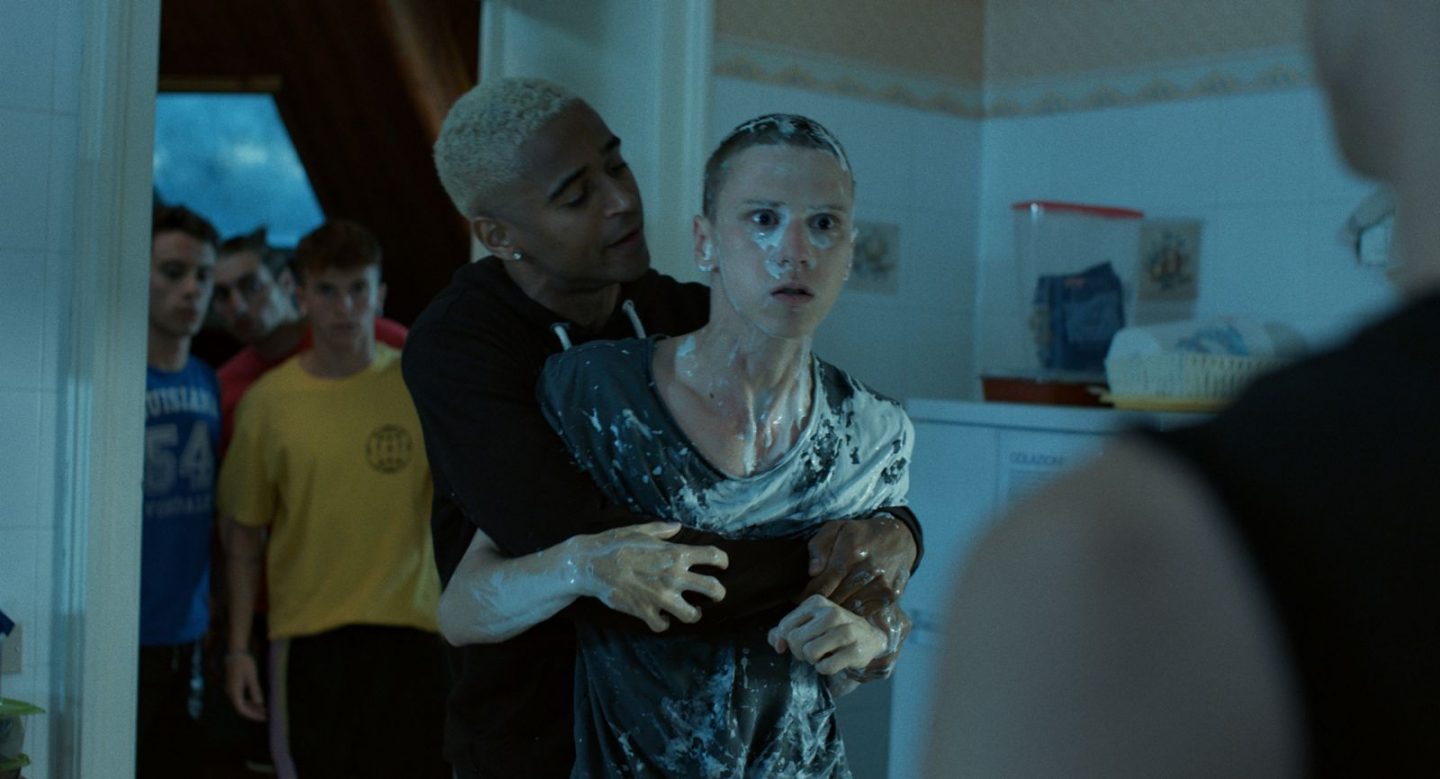
How did watching the movie make you reflect on your time? Did certain scenes really take you straight back to what really happened to you?
Yeah, definitely. I mean, there were parts that were very, very strong for me to see, especially the first time. And I will say, because it’s not a spoiler, that when he comes to the house where the players live, it looks a lot like it did in the house we lived in because they got the opportunity to actually see that house. They were able to replicate some of the style in there. So that was strong, but also the feeling that is stepping into a place where you don’t know the language and you feel quite lost. What are people talking about? You know, all the confusion, that really struck me the first time like, ‘wow, this is really how it was, this is how it felt.’ And then of course, the competitiveness that builds up in this house was very similar, where everyone wants to be on top and you’re ready to do whatever to get there.
I think there’s also a scene in the end with his mother, that’s very, very close to how I wrote it in the book and how it was. When Martin comes to a place where he don’t know the way out anymore, and he has been through this collapse and his suicide attempt. Mostly it’s very true to the journey even though there are some biographical facts changed and they’ve dramatised some parts, it is very true to a boy getting stuck in his dream and not being able to find a way out. I could pick many situations from the movie that is very, very close to the how it felt and how it was.
At the time was there was there anything spoken around mental health at all? In the culture and in the clubs you were at?
Oh no, not at all. Not at all. I remember when we were with the under-17 national team, at these camps, we had an hour or two where you worked with mental stuff, you know. But it was called under some topic, I can’t remember what, and it was always about imagining how you would do a better performance on the pitch. It was not about how you feel, the existential things that a lot of these teenagers are having thoughts around. It was very much focused on the performance.
I speak with players from time to time, and I also lecture every year for the national team, the under 17s, and under 16s. So I hear a lot of stories from the players, and some say they are in clubs where they have much more of an organisation around these things today. They have maybe a therapist. But other players say it’s way worse in my club than is shown in the book or in the movie. So, I think it’s both – I think there’s some clubs that really takes this seriously and understand how the performance on the pitch is connected to a general sense of health in how you feel, and the psychological aspects of it. And then there’s others where it’s more about the strongest survives – are you fit enough to make it or not? Rather than looking at the individuals and thinking, ‘Okay, how do we create an environment that will make the most out of this player?’
What’s important to say, as well, is that today there’s much more money in football, and in one way there’s higher pressure on the players. There’s been much more exposure after the entrance of social media. In many ways, it’s much more important than ever, for clubs and the Football Federations, to work with this question, and take a serious look at it.
Players we have spoken to say also there’s no consistency across clubs…
It’s very, very reactive, I think. It almost becomes almost like this greenwashing thing that companies do. ‘Okay, now we need to show that we do this’, rather than actually understanding that this job is important for the improvement of the player. Not just as individuals, but actually also as players. That’s the knowledge and understanding that is lacking. It’s still much more of a reactive thing, like ‘Okay, now we have to work with this, because it’s a topic.’
So were you aware of what was happening to you at the time? Did you fully comprehend that you were struggling?
No, no, I did not have a language for it. That’s also why it becomes so dramatic and that’s the problem both the book is exploring but also the film. Showing that when a young man who has just been focused on one thing and hasn’t really created a language for his emotions, and not grown up in a society where it is okay for men to show emotions and talk about them, then sooner or later if this person gets into a situation with a lot of pressure or where he can’t escape, this violence will take place – and that can be directed to others or it can be directed to himself.
I think this movie is saying that it’s important for men to have room to show emotions and to speak because the consequences if they are not allowed – or if we don’t create places where this is allowed – they are catastrophic, basically. You have a lot of men dying by suicide, and a lot of players feeling very, very bad in the football world. When it comes to these questions around mental health, there was a study Fitpro did just a couple of years ago with high numbers of players who explained that they have suffered from this. I think being a man and not having the language or not having learned to speak about emotions, and then being away in a very competitive and hyper-capitalistic small environment, can be a dangerous cocktail.
And at that elite level, you must find that you don’t want to betray any kind of weakness or any sense of things going wrong, because you might not get picked – and that’s your entire life?
You can’t show it, you can’t show it to anyone. I get that question a lot: ‘why didn’t you tell your teammates, or the coach?’ Because then I would never get chance to play! I mean, if you show it to someone in the team, or other teams, you are showing weakness, and the culture of football at that level is built on this idea of strength and weakness. It’s very simple in that way, but I think having that narrow perspective also makes less players come forward that could have been very good, who maybe needed another environment or another attitude around them to become the best they can be.
The actual matches are really effective in the film, as the strain starts to show in a physical way. Is that the way it manifested itself for you in reality?
I think that’s a little bit of a dramatisation in the movie. I didn’t have that physical effect in that way, it was more outside the pitch. In real life, it was nice sometimes to get out on the pitch, because I was so much in my head. There are some parts in the film where Martin has problems with his chest, and so on, that’s a way for the movie to show that something is wrong. He feels that something is wrong, and that this feeling inside is starting to express itself in different ways. But from what I can remember, I didn’t feel that when I played on the pitch.
How important was was making notes for you during that time. Obviously that developed into the book, but was that a real solace for you?
Yeah, it was super important. And in the movie, Martin is taking notes that somehow go from being things telling himself to perform better on the pitch, and into more…well, you don’t really know what he’s writing. And I think that’s something that Ronnie really picked from real life, that I had this notebook. In real life, I also got a guitar. To have something to do outside of the pitch while we were kind of locked in this house. Writing songs and writing lyrics and writing poetry and all that became super important for me. Part of the collapse in real life was that these papers and poems and lyrics were taken away from me, from the room. They went in there and took it and said that in a football player’s room, there should not be papers laying around. This was part of the trigger in real life. Because you have your right to express yourself. That became a very clear collision that was hard for me to navigate.
The film is also really good at looking at bullying. Just how subtle it can be, when it’s about ignoring someone, leaving them out. Again, was that something that you experienced in that way?
I experienced that. Definitely. And then there was also some guys who were really good to me. In the movie you have a general sense that everyone mean to him, except this friend from America that he meets. In real life, you had a lot of these players who really felt the competitiveness, and I was new in the team, and they wanted both on the pitch and sometimes outside to show who was in charge basically. Or find ways to put me out, to help themselves, basically. But there were other players as well, that I’ve been in contact with after it all, who took good care of me, the Nigerian players, also the Australian players who are now in the movie combined into the American player. But they were brilliant to me. When you make a movie, you take the bits and the essence of it, and you you dramatise it. It was like that, there was bullying in the team, and there were fights in the team, all that. But in real life, there was also one or two or three more good people who were also good support.
Looking back on it now, like, how did you get through it and start to move on?
Yeah, it was a journey in itself. As the movie shows, I went really dark and deep and I went back to Sweden after this event that almost took my life. I couldn’t get out of bed for the first two months, while there were still discussions with Inter, who wanted me to come back. After a while, I started therapy. My parents said, ‘you need help, you need to get out of bed and you need help to find a way through this.’ I decided to not go back to Inter, I said no to that, and the contract had to be ripped up. And then I started the journey in this therapy of coming back to writing basically, and that became super important, to just start to put words on the experience. Slowly that started to become this book. I tried to play football for a couple of months, because I had kind of a physical need of playing but then I read in the newspaper one day after I had done a good game, they wrote, like, ‘Now Bengtsson is back on his feet, going forward again’, and I realised when I read that: ‘I don’t want this anymore’. It was just very clear. Writing had started to take over as a dream and a goal and something that gave me energy. So I cut it off in a very brutal way and changed direction in life. I started to study and then started to go deeper and deeper into writing. When I went to Berlin I started to write music and so on and then applied for schools, basically.
And how are you these days? Are you better at spotting your mental health difficulties now?
Yeah, I think I have an awareness of when I’m getting very obsessed with something, or when I start to lose perspective of things. What my story has taught me is that I need to constantly have perspective of things, and that nothing is worth fighting so hard for that it takes your life. Just by having experienced this, I naturally have a more laid back approach to whatever interests I have, or whatever work I’m doing. I can still be very disciplined and very focused and have goals and really work hard. But when I feel like it’s getting a bit too much, I have no problem with stepping back and just giving myself a break.
Also, I had my first child last summer, and having a family and becoming a father, also brings perspective. Sometimes trying to reach a goal can be very egocentric as well, and when you you get grounded, when you have family and other people around you, that’s been important for me, as it is for a lot of people.
What do you hope people will get from the film?
An insight into the football industry that we might not have seen before, to learn about the backside of football. But I think what’s important to say, is I hope that the film will give the audience some hope, because I think there is hope in it as well. Even though Martin goes through a very rough time in a sensitive phase in life, he gets out of there. What I want to the audience to be feeling after, is that it’s okay to try, it’s okay to fail, and you can get up again, and you can choose another direction.
And how is the how’s the football world received it so far?
I feel it’s been received very well, both from the general audience and by the critics, and by the football world, at least here in Sweden. And now it’s interesting and curious to see how it’ll get received in England, when you have the Premier League and to see where they are around these questions now. I know that there have been players who are speaking out, so I’m curious to see where it lands there. But I’m proud of the movie, and I’m looking forward to it meeting the British audience as well.
Tigers will be release in UK cinemas July 1st 2022
Main photo by: Iza Boëthius
Trending

Join The Book of Man
Sign up to our daily newsletters to join the frontline of the revolution in masculinity.






